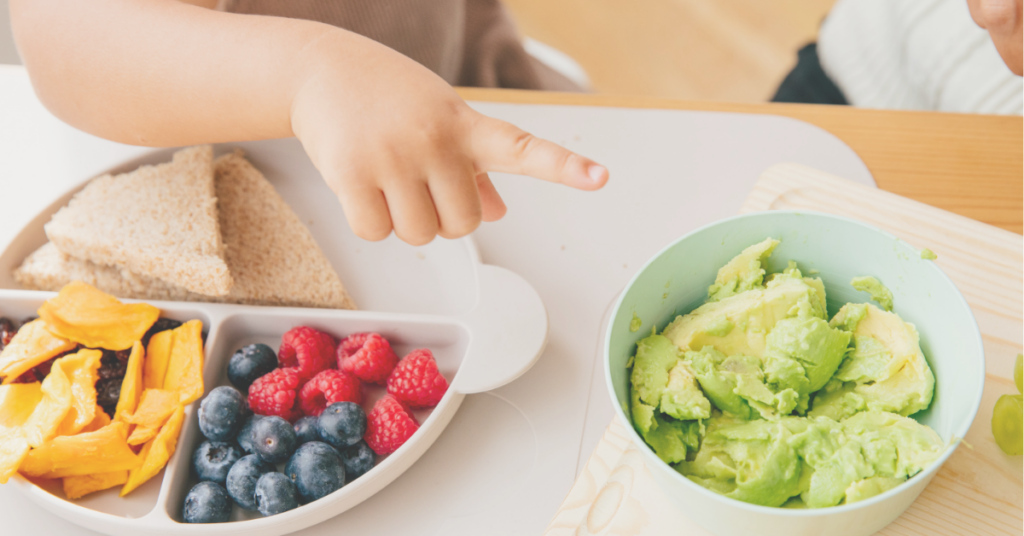“Do you want the red cup or the blue cup?”
A simple question, right? But to a child, it’s so much more. It’s their chance to have a say, to feel empowered, to build confidence in their own decision-making. These tiny, everyday choices are laying the foundation for independence, resilience, and emotional intelligence.
As parents, we often feel the need to guide and direct every step our child takes, believing it’s the best way to keep them safe and on track. But what if the secret to raising capable, confident kids isn’t in doing everything for them—but in letting them choose?
I talk more about this shift from control to connection in Presence Over Perfection: Why Being Here Matters More Than Doing It All, where we explore how slowing down can support your child’s growth—and your own peace of mind.
Why Choices Matter More Than We Realise

Research in child psychology shows that giving kids age-appropriate choices helps them develop decision-making skills, emotional regulation, and self-confidence. When children are given the power to choose—even in the smallest ways—they learn to trust themselves, handle consequences, and navigate life with greater ease.
A study published in Developmental Psychology found that children who are given choices from a young age tend to develop higher intrinsic motivation, stronger problem-solving skills, and greater persistence when faced with challenges. Simply put: kids who are allowed to make decisions in safe, supported ways grow up feeling more capable and confident.
But here’s the key—it’s not about giving them endless options (which can be overwhelming). It’s about offering structured choices that empower them within safe boundaries.
The Science of Choice: How It Shapes a Child’s Mindset
🔹 The Self-Determination Theory (Deci & Ryan) emphasizes that all humans thrive when they experience autonomy, competence, and connection—and children are no different! When kids are given choices, they feel more in control of their world, reducing power struggles and fostering cooperation.
🔹 A Stanford University study found that even toddlers are more engaged and persistent in tasks when they are allowed to choose, rather than being told what to do. This means the child who picks between two snacks is more likely to eat happily than the one forced to eat what’s given. The child who chooses between two outfits feels more in control than the one dressed without a say.
🔹 Harvard’s Center on the Developing Child stresses that early decision-making opportunities help build executive function skills, teaching kids to assess, plan, and think ahead—critical life skills they will use forever.
How to Offer Choices That Empower (Without Overwhelming)
So, how do we encourage independence through choice without turning every moment into a drawn-out negotiation? The answer is simple: keep choices limited, meaningful, and structured.

💡 1. Keep It Simple
Instead of “What do you want for breakfast?” (which can lead to decision fatigue), try:
✅ “Would you like oatmeal or scrambled eggs?”
✅ “Would you like to wear sneakers or sandals?”
💡 2. Offer Choices That Still Align With Your Needs
Instead of a power struggle, frame choices within limits that work for you.
✅ “Do you want to brush your teeth before or after your bath?” (Either way, the teeth get brushed!)
✅ “Would you like to clean up your blocks first or your books?”
💡 3. Use Choices to Minimise Resistance
When kids feel in control, they are less likely to resist.
✅ Instead of “Hold my hand right now!” → “Would you like to hold my hand or walk beside me?”
✅ Instead of “It’s bedtime—go to sleep.” → “Would you like one bedtime story or two?”
💡 4. Allow Natural Consequences to Teach
✅ If they insist on wearing sneakers in the rain, let them feel the damp socks (a small, safe lesson).
✅ If they refuse to wear a jacket, they’ll quickly understand what “cold” feels like and make a different choice next time.
When Kids Don’t Get Choices: The Long-Term Impact

Children raised in overly controlling environments may struggle with decision-making later in life. Research shows they often develop lower self-confidence, increased dependence on external validation, and reluctance to take initiative.
When kids aren’t given opportunities to make decisions in childhood, they may:
- Struggle with problem-solving as adults.
- Fear making mistakes or taking risks.
- Rely on others to tell them what to do instead of trusting their instincts.
This is why small choices matter—they train the brain to assess, decide, and take ownership.
If this idea resonates, you might also appreciate The Bounce Back Lie: Why Motherhood Is a Forward Journey—a reminder that we don’t need to cling to perfect outcomes to raise emotionally healthy kids. It’s okay to evolve right alongside them.
The Beauty of Simple Choices
The best part? You don’t need fancy parenting techniques or elaborate strategies. Everyday choices are enough.
- “Do you want to help stir the pancake batter or set the table?” → Builds contribution & capability.
- “Would you like to hop like a bunny or tiptoe like a mouse to the car?” → Turns routines into fun, reducing resistance.
- “Would you like to read Goodnight Moon or The Very Hungry Caterpillar tonight?” → Strengthens autonomy while keeping bedtime structured.
These simple choices help children grow into confident, independent, and emotionally strong individuals.
Final Thoughts: Raising Decision-Makers, One Small Choice at a Time

Let’s shift our mindset: we’re not just raising kids—we’re raising future adults who want to have impact, contribute, and have a say. They naturally seek to explore and test their environment, and the way we set up that environment determines whether they find their way positively or negatively.
By giving them small, structured choices every day, we’re:
✅ Teaching them to trust themselves
✅ Building their confidence in decision-making
✅ Helping them develop independence in a way that still feels safe and supported
So, mamas, let’s celebrate these moments—whether it’s letting them pick their snack, choose their pajamas, or decide how to clean up. Because these aren’t just little decisions; they are the building blocks of a capable, confident, and independent child.

Wondering how to hold space for yourself while parenting this way, How to Show Up for Yourself as a Mom—Without the Guilt offers practical ways to care for you without adding to your load.
📩 Join Our Community
Want more research-backed parenting insights? Subscribe to our newsletter for weekly tips on raising confident, mindful, and emotionally strong kids! 💛



